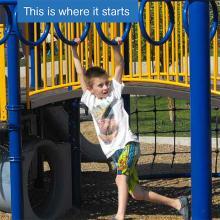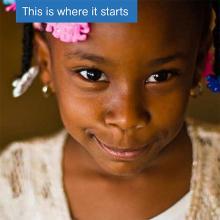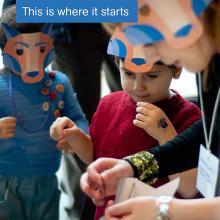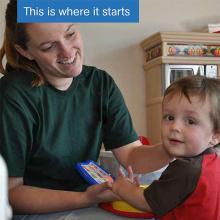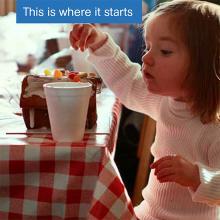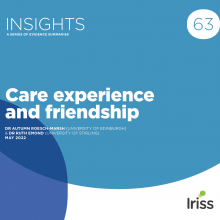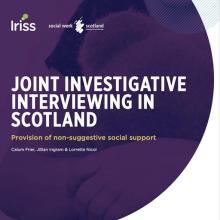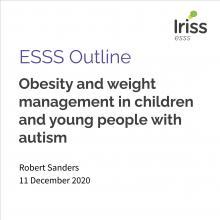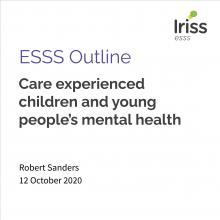This case study is part of This is Where it Starts, a collection of eight case studies on work with children and parents in early years. Case study five.
Background
The Douglas Family Support Centre in Dundee provides a variety of services to children and their families. These services may include assessment, contact, developmental and educational work, and work with parents to support them in their parenting role.
The centre runs a support group specifically for dads and was established to address a lack of provision for dads. Research highlights two important things about this group - dads are often 'harder to reach' but play a vital role in their child's development (Featherstone, 2010). The dads in the group have come to the family centre through social work referrals. Participation in the group is voluntary. The dads have a range of experiences including those of the criminal justice system, substance misuse, domestic violence and homelessness. Some are single parent carers and some are part of a couple. Often they are fathers of children who are accommodated. The group is facilitated by a member of the family support centre with extensive experience in running group work. The Dads Group is based on the Mellow Mums programme, an evidence-based group intervention aimed at mothers and babies.
Funding (and costs where available)
Funding: Dundee City Council / Douglas Family Support Centre core funding
Size and number of staff
1 full time staff member, plus 2 additional staff as needed
Referral route
Statutory and third sector social work agencies
Key partners
Working for Families, local health initiatives, Childcare@ Home, Douglas Community Centre, One Parent Families Scotland
Established
2008
Key messages
Ensure group work is child-centred
An important element of the Dads Group work is that it is child-centred. Unlike a standard 'contact session' when a parent spends time with their accommodated child in the presence of a social worker, the group provides a space for dads to be with their children but also to support each other and learn together. Much of the group work focuses on how dads can support their child's early development through positive interaction, feeding, holding, settling, communicating and playing. Evidence about childrens' brain development including the effects of stress hormones and fear on young children is explored with the dads. The group environment also provides a space where dads and children can observe and mirror each other's behaviour, something the group facilitator feels very much enhances learning for both children and dads. A strong message from the facilitator and centre manager is that in order to work effectively with dads it is important to acknowledge them as parents, particularly if their child is accommodated. If parents feel their role is obsolete or invalidated when their child is removed from their care it will be more difficult to engage them.
'If they can succeed in the group, they can succeed in other areas'
Fundamentally, the group's function is to provide a way to work with dads, many of whom have chaotic lives or additional education needs, to enhance their capacity as parents but also as individuals. Underlying this asset-based approach is the belief that each dad has resilience and capacity which can be nurtured through group work. Being part of the group, supporting other dads and learning about parenting and child development can give dads a real sense of confidence and achievement in their lives. As the group facilitator says, to work with males in a positive way can be challenging but 'the bottom line is you've got to like the people you work with'.
Balance authority with ownership
The group facilitator feels it is important to 'attune yourself differently in a group with parents'. Authority has to be balanced where the facilitator sets some rules and boundaries (eg no raised voices, no swearing) but also allows dads to have ownership of the group. When dads feel this ownership, it enables them to challenge and support each other.
'Take the monster out of the social worker'
The facilitator reflected that an important part of the group's effectiveness is not being afraid to allow dads to 'let off steam' about their experiences of social work services. Acknowledging their experiences and feelings helps to establish trust and openness in the group and is felt to be a necessary first step before being able to move on to explore other issues. Taking this further, the facilitator feels that including social workers and foster carers in the group work can be beneficial and can 'take the monster out of the social worker'. However, instances of social workers and foster carers taking part in the group are rare; suggested reasons for this include lack of time, defensiveness or concerns about aggression from the dads.
'Dads need to talk about themselves before they can talk about their children'
Part of the group work focuses on allowing the dads to revisit their own experiences of childhood. This is important as their own life experiences will impact on their ability to relate to and support their own child's development. For example, through the group work it became apparent that many dads in the group had limited, delayed or no experiences of play. Some couldn't recall any play experiences before the age of nine or ten. The role of play in a child's early years is well documented in research as is parents' role in supporting this. Through the group work dads were supported to learn about play and practical ways to play with their children.
Use film, photographs and digital stories for positive reinforcement
Video Interaction Guidance (VIG)5 is used with parents at the centre. It is a method by which short pieces of film are taken of a parent's interaction with their child. Parents are then guided through the video by a facilitator to help them reflect on and recognise positive interactions with their children. VIG is a way of micro-analysing the relationship between parents and children and proved effective in the Dads Group as a way of enhancing their understanding of the communication between them and their babies. Staff at the centre have also supported parents to record digital stories of their experiences which is used for reflection, but also in some cases, as a way for parents to share their stories with others in the group. Photographs are routinely taken of parents and their children, again, to capture and reflect back positive experiences.
Share the knowledge
The group facilitator has made it part of her role to cascade the knowledge she has gained through working with males in a positive way in the Dads Group. This includes sharing practice with staff at the family centre but also with other local centres where there is an interest in working with dads but a lack of specific provision for them. This knowledge sharing is enabled in part by a personal commitment on the part of the facilitator to supporting dads and to helping staff to recognise the skills they might have which would be particularly suited to working with males in an assetbased way. The facilitator's personal commitment is supported by the culture of the family centre which encourages creativity, autonomy and building staff skills and confidence.
Further information and references
- Featherstone B, Fraser C and Lindley B and Ashley, C (2010) Fathers matter: Resources for social work educators (PDF), Family Rights Group
- Mellow Mum
- Video Interaction Guidance (VIG)

